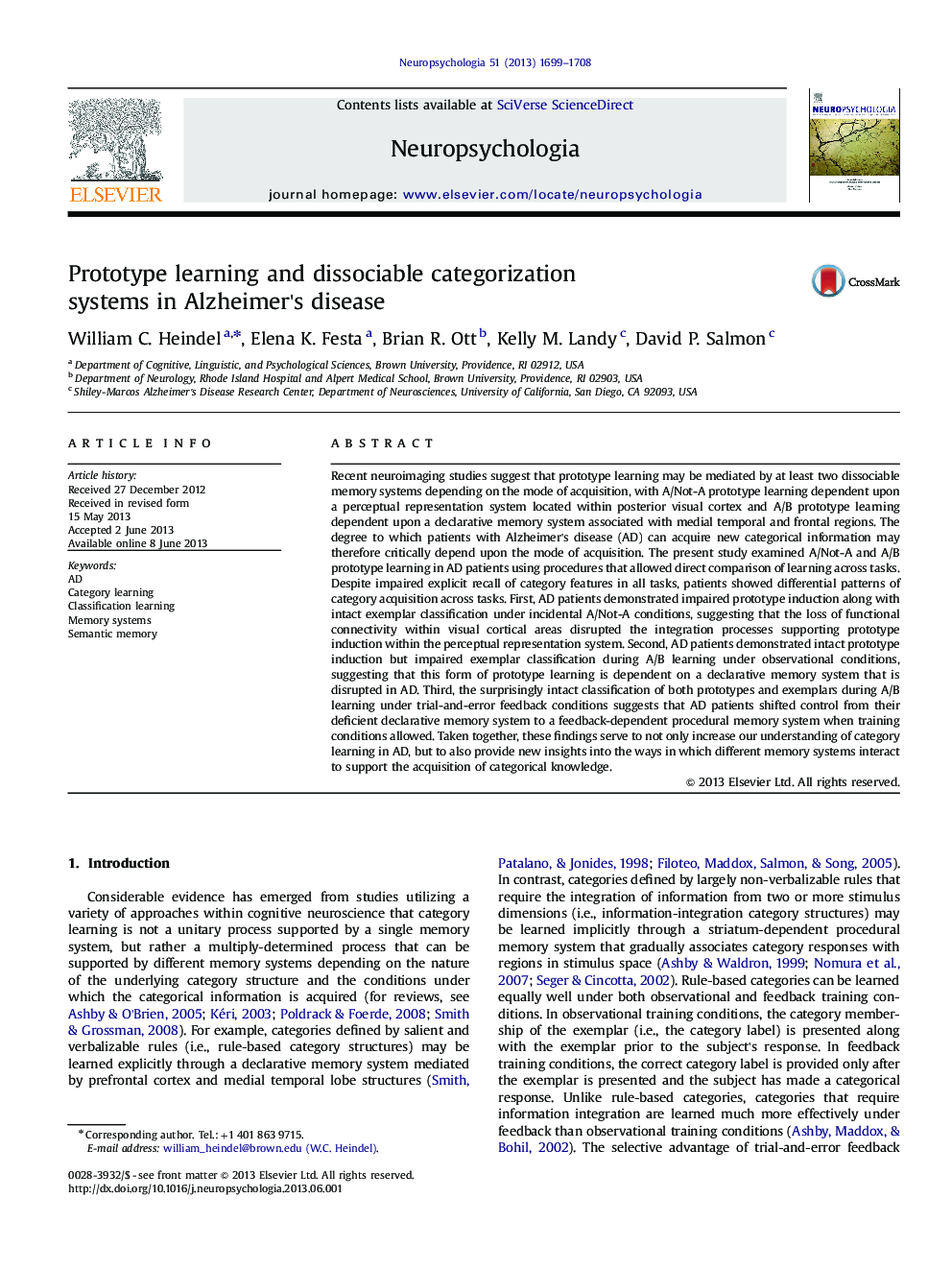| Article ID | Journal | Published Year | Pages | File Type |
|---|---|---|---|---|
| 10464759 | Neuropsychologia | 2013 | 10 Pages |
Abstract
Recent neuroimaging studies suggest that prototype learning may be mediated by at least two dissociable memory systems depending on the mode of acquisition, with A/Not-A prototype learning dependent upon a perceptual representation system located within posterior visual cortex and A/B prototype learning dependent upon a declarative memory system associated with medial temporal and frontal regions. The degree to which patients with Alzheimer's disease (AD) can acquire new categorical information may therefore critically depend upon the mode of acquisition. The present study examined A/Not-A and A/B prototype learning in AD patients using procedures that allowed direct comparison of learning across tasks. Despite impaired explicit recall of category features in all tasks, patients showed differential patterns of category acquisition across tasks. First, AD patients demonstrated impaired prototype induction along with intact exemplar classification under incidental A/Not-A conditions, suggesting that the loss of functional connectivity within visual cortical areas disrupted the integration processes supporting prototype induction within the perceptual representation system. Second, AD patients demonstrated intact prototype induction but impaired exemplar classification during A/B learning under observational conditions, suggesting that this form of prototype learning is dependent on a declarative memory system that is disrupted in AD. Third, the surprisingly intact classification of both prototypes and exemplars during A/B learning under trial-and-error feedback conditions suggests that AD patients shifted control from their deficient declarative memory system to a feedback-dependent procedural memory system when training conditions allowed. Taken together, these findings serve to not only increase our understanding of category learning in AD, but to also provide new insights into the ways in which different memory systems interact to support the acquisition of categorical knowledge.
Related Topics
Life Sciences
Neuroscience
Behavioral Neuroscience
Authors
William C. Heindel, Elena K. Festa, Brian R. Ott, Kelly M. Landy, David P. Salmon,
